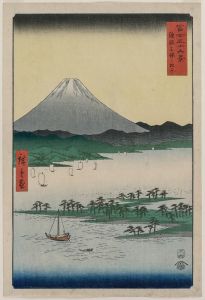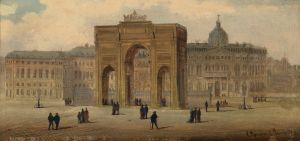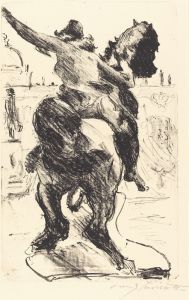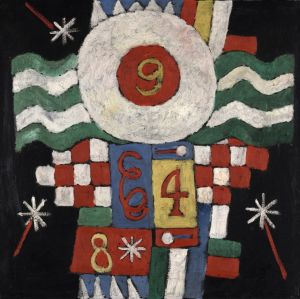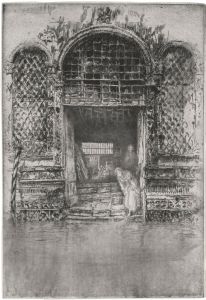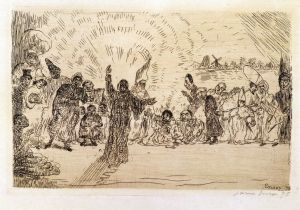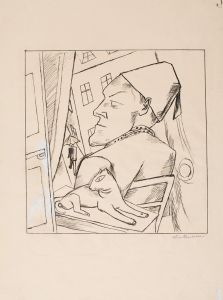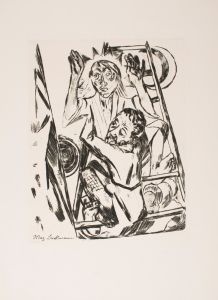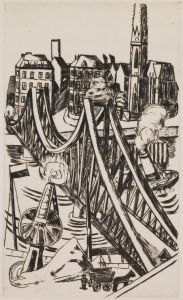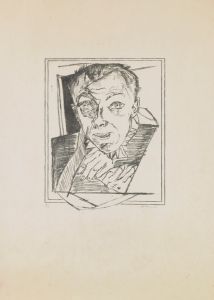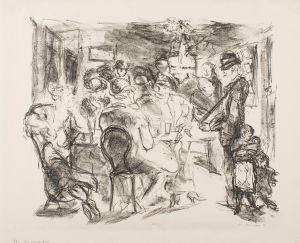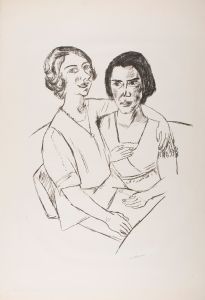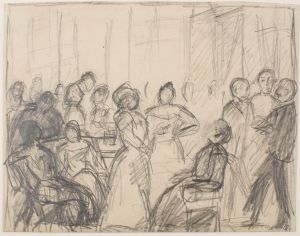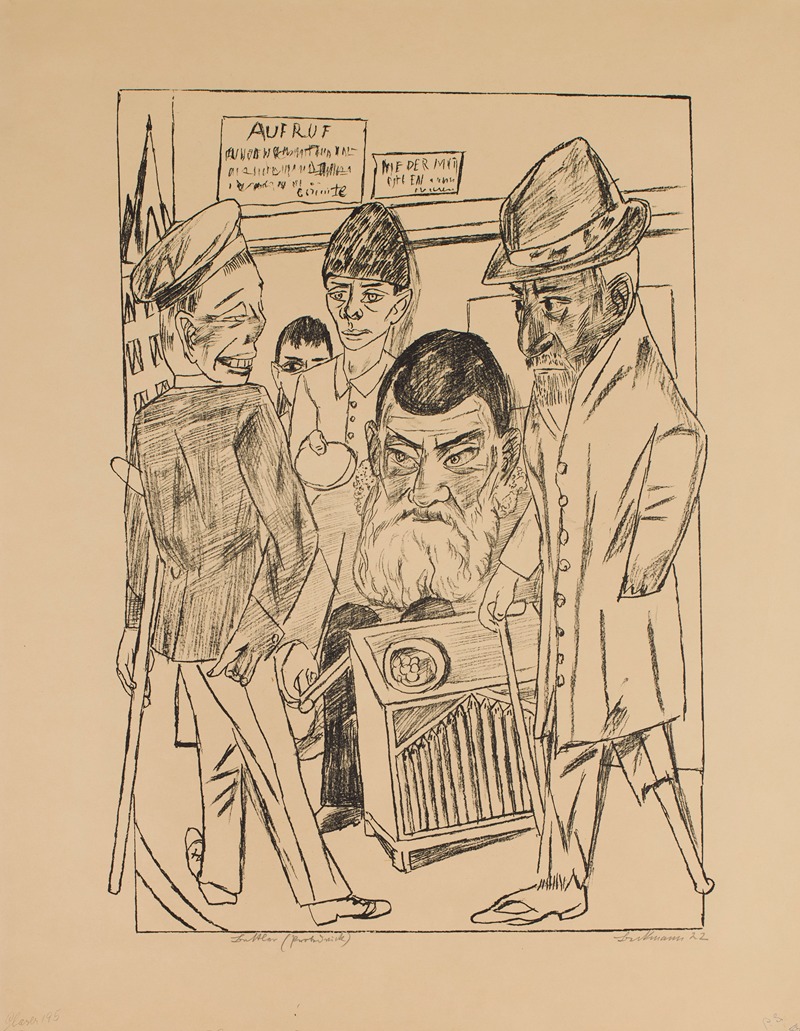
The Beggars, plate 7 from the series ‘Trip to Berlin 1922’
A hand-painted replica of Max Beckmann’s masterpiece The Beggars, plate 7 from the series ‘Trip to Berlin 1922’, meticulously crafted by professional artists to capture the true essence of the original. Each piece is created with museum-quality canvas and rare mineral pigments, carefully painted by experienced artists with delicate brushstrokes and rich, layered colors to perfectly recreate the texture of the original artwork. Unlike machine-printed reproductions, this hand-painted version brings the painting to life, infused with the artist’s emotions and skill in every stroke. Whether for personal collection or home decoration, it instantly elevates the artistic atmosphere of any space.
Max Beckmann's The Beggars, plate 7 from the series ‘Trip to Berlin 1922’ is a work by the renowned German painter and printmaker Max Beckmann (1884–1950). This piece is part of a series of lithographs Beckmann created in 1922, titled Trip to Berlin (Die Reise nach Berlin), which reflects his observations and experiences during a visit to the German capital in the aftermath of World War I.
Beckmann, a leading figure in the New Objectivity (Neue Sachlichkeit) movement, often used his art to depict the social and political realities of his time. The Trip to Berlin series captures the atmosphere of Berlin during the Weimar Republic, a period marked by economic instability, social upheaval, and cultural experimentation. The series consists of ten lithographs, each portraying scenes of urban life, poverty, and the human condition in postwar Germany.
In The Beggars, Beckmann presents a stark and unflinching portrayal of destitution. The composition features a group of impoverished individuals, emphasizing their vulnerability and the harsh realities of life in Berlin during this period. The figures are rendered with Beckmann's characteristic bold lines and dramatic contrasts, which heighten the emotional intensity of the scene. The work reflects Beckmann's concern with the struggles of ordinary people and his ability to convey the psychological depth of his subjects.
The Trip to Berlin series is significant not only for its artistic merit but also for its historical context. Berlin in the early 1920s was a city grappling with the aftermath of World War I, hyperinflation, and widespread poverty. Beckmann's lithographs serve as a visual document of this turbulent era, offering insight into the social conditions and human experiences of the time.
Max Beckmann's work is often associated with his personal experiences and the broader historical events that shaped his life. Having served as a medical orderly during World War I, Beckmann was deeply affected by the horrors of war, which influenced his artistic vision. His works frequently explore themes of suffering, resilience, and the complexities of human existence.
The Beggars and the Trip to Berlin series exemplify Beckmann's mastery of printmaking and his ability to capture the essence of a historical moment. Today, these works are regarded as important contributions to 20th-century art, reflecting both the personal vision of the artist and the broader societal challenges of his time.





